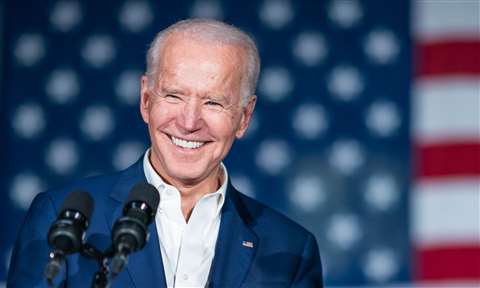US edges closer to trillion-dollar infrastructure deal
28 June 2021

US President Joe Biden said “We have a deal” after a group of centrist lawmakers hammered out a bipartisan US$1.2 trillion infrastructure spending package that promises US$579 billion in new money for the nation’s roads, bridges, tunnels, rail and broadband over eight years.
“This agreement signals to the world that we can function, deliver and do significant things,” President Biden was quoted as saying.
Earlier this year, the American Society of Civil Engineers’ gave the US an overall mark of C- for the condition of its roads, bridges, ports, drinking water systems and electricity grids and identified a US$2.59 trillion spending gap.
The latest agreement marks the first major increase of federal public works spending since President Obama’s 2009 economic rescue plan. If passed, it would include some existing infrastructure programs, but also provide new funds for repairing and rebuilding the nation’s highways and bridges, as well as constructing high-speed rail and increasing spreading high-speed internet access.
“I see this opportunity as being just as transformative as the period of rural electrification and bringing water and sewer to all residences in the United States,” said Jason Andringa, president and CEO of Vermeer Corporation, a large, family-owned agricultural and heavy equipment manufacturer.
The current framework would designate US$312 billion for transportation projects, US$65 billion for broadband and US$55 billion for water infrastructure. A large sum, US$47 billion, is set aside for ‘resilience’ — a down payment on President Biden’s promise to deal with the effects of climate change.
Under the current proposal, the US$1.2 trillion plan would be paid for in part with a US$40 billion increase in the IRS enforcement budget to bring in US$140 billion in unpaid taxes, as well as repurposing unspent coronavirus relief funds, according to an outline provided by the White House.
However, almost immediately after reaching the breakthrough, Biden and Democrats added a condition that could complicate the bill’s chances of passage by saying that the economic agenda proposed could advance only alongside a bigger bill that would pour trillions more into health care, child care, higher education access and climate change programs. That measure, opposed by Republicans, would be paid for by increasing taxes on the ultra rich and global corporations that shift profits and jobs overseas.
“If this is the only thing that comes to me, I’m not signing it,” Biden was quoted as saying. “It’s in tandem.”
Leaders aim to finish the first step on the reconciliation measure before leaving Washington for the August recess, but would probably push final passage to September. And while 21 senators endorsed a theoretical infrastructure framework this month, only five Republicans and five Democrats signed on to the final compromise. Lawmakers will now have to persuade enough Republicans and Democrats to support the framework.
STAY CONNECTED



Receive the information you need when you need it through our world-leading magazines, newsletters and daily briefings.
CONNECT WITH THE TEAM









